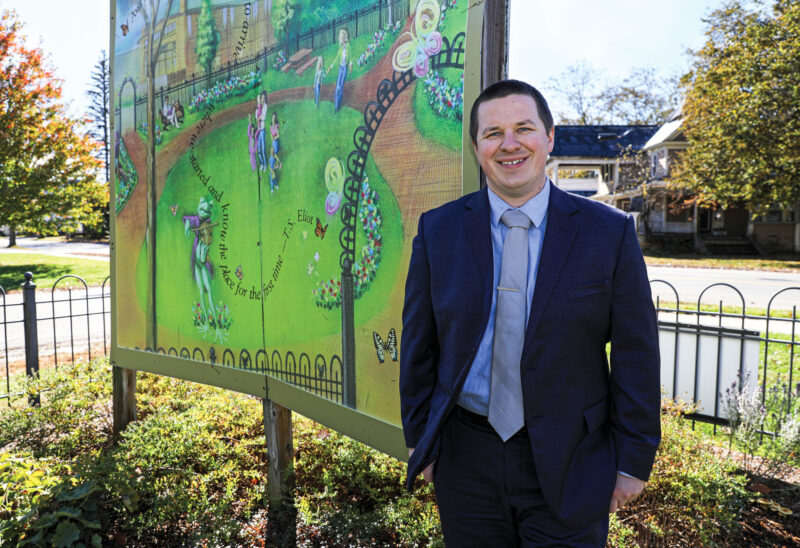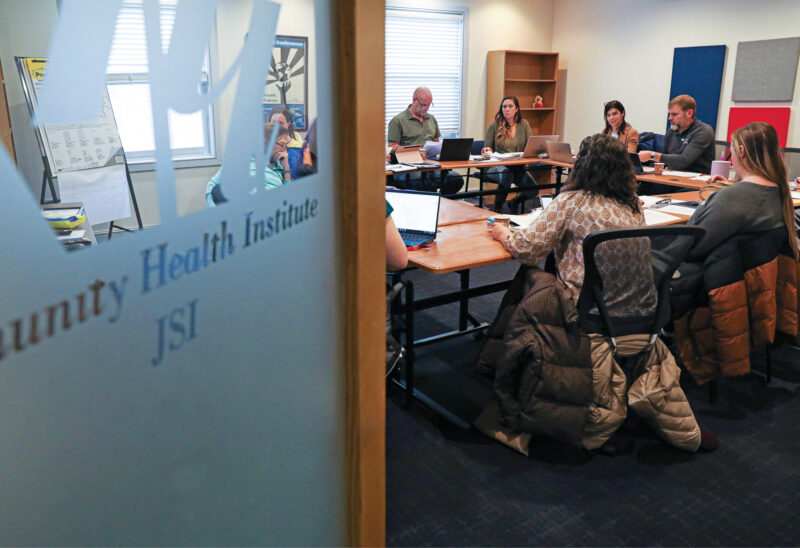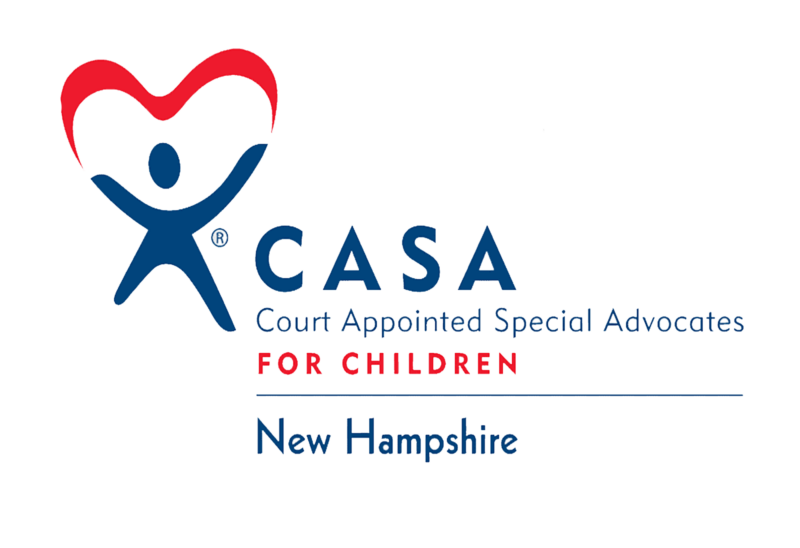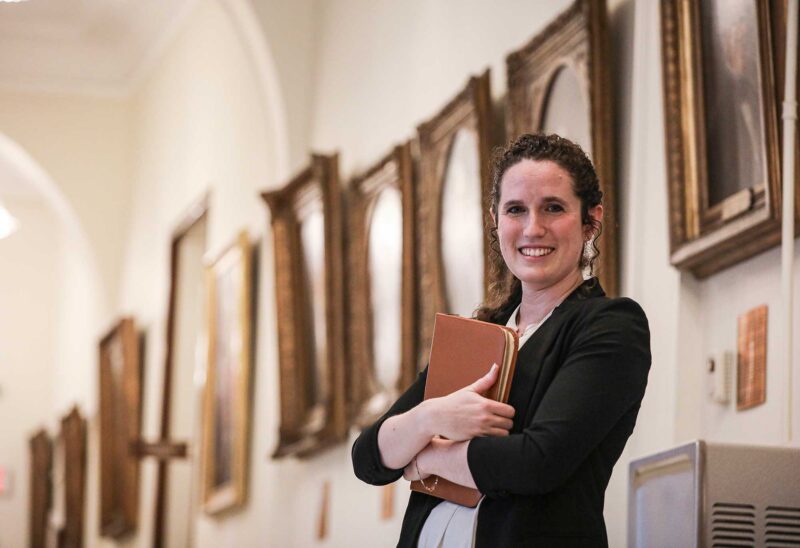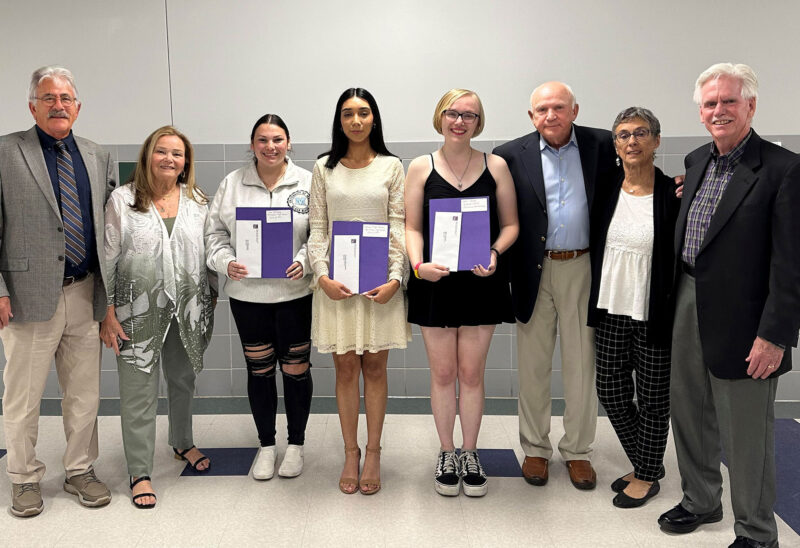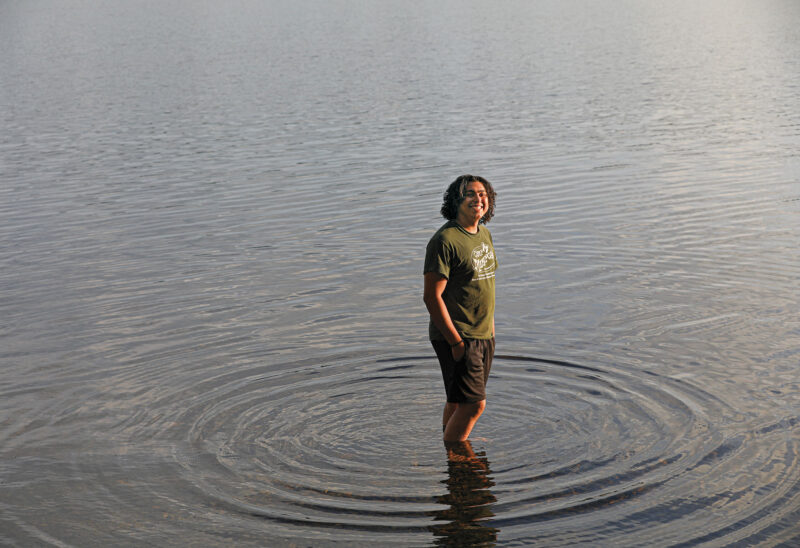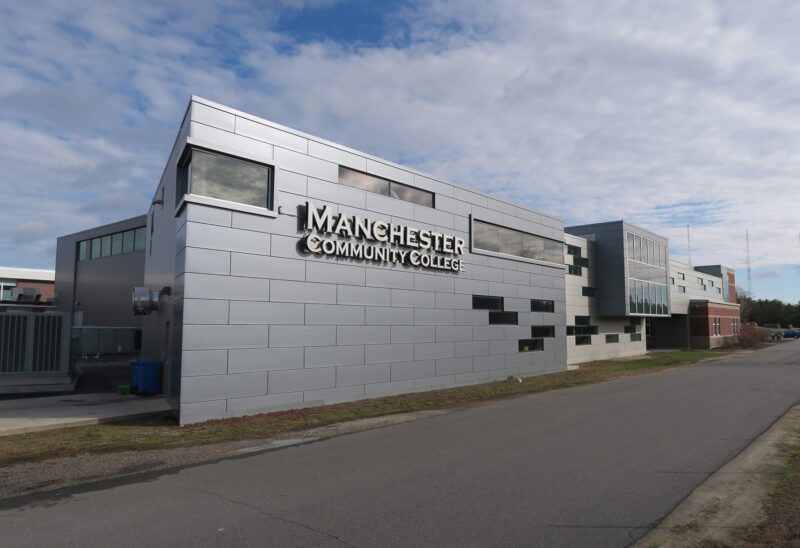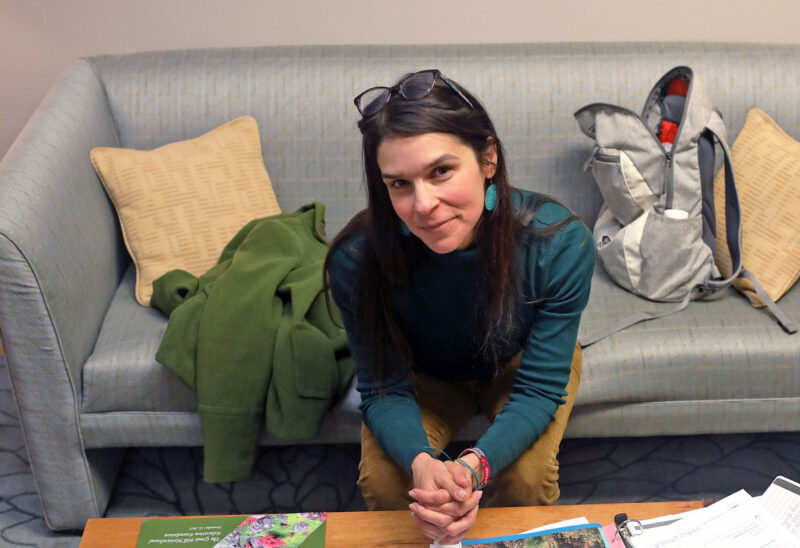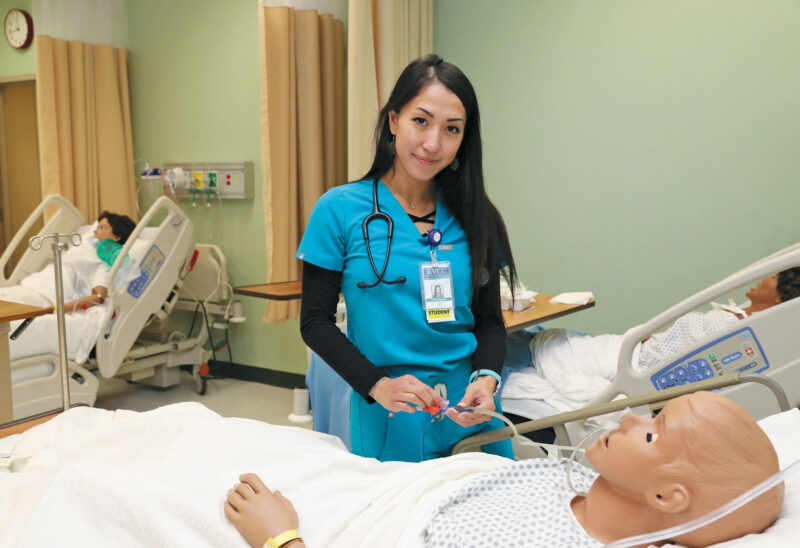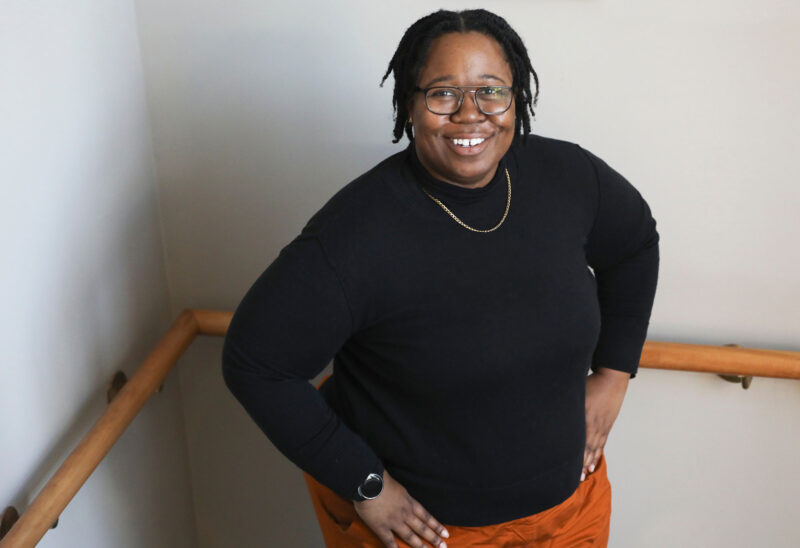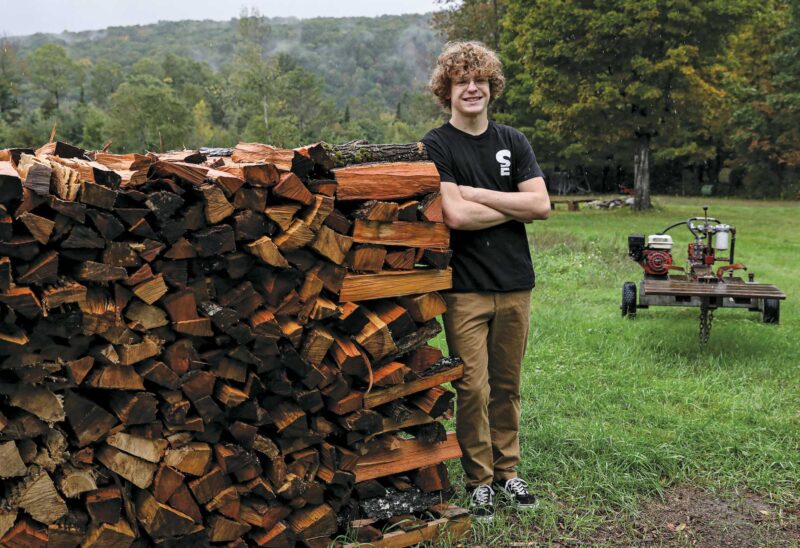Christina Lachance is the Foundation’s new Director of Early Childhood and Family Initiatives. Improving early childhood development and education programs is a major component of the Charitable Foundation’s New Hampshire Tomorrow agenda to increase youth opportunity. Her position was made possible through a generous gift from the Couch Family Foundation. Christina is former vice president of children’s services and oral health at Easter Seals New Hampshire. She has an advanced degree in early childhood, has directed a Head Start program, and has extensive experience leading health and human services programs for children in New Hampshire, Rhode Island, and Maine. She lives with her husband in Gilmanton.
You have seen the world of early childhood from many angles – from classroom teacher to administrator of a statewide program serving more than 3,000 vulnerable children and families and you’ve lobbied about the importance of early childhood on Capitol Hill. How did the combination of those things lead you to this position, now, at the Charitable Foundation?
I saw this opportunity as a culmination of a lot of the work I have been doing and some of the systems change I want to work on to close the opportunity gap for children and families in New Hampshire. This work is really beyond the scope of any one agency. It requires a larger and more global effort. I saw this as a natural opportunity to really be a voice for children and to help us think about the future of New Hampshire and our future workforce and our schools. I am profoundly grateful that the Foundation created this kind of role and has made a commitment to very young children and their families. I have so much respect for that and I am profoundly grateful to have been selected to do the work.
It seems as though there is a new awareness out there – driven in part by new brain science, and data on societal return on investment – about the importance of early childhood. What is your sense of the sort of public momentum on this issue?
I do think that there has been a movement now for a few years starting with James Heckman, who looked at early childhood development from the economic standpoint and getting people to understand that prevention is the key and that investing in early childhood is going to save thousands and thousands of dollars later. I think that has certainly helped as a starting point. And thanks to the brain research conducted by Jack Shonkoff at Harvard University’s Center on the Developing Child, as well as research that Robert Putnam has done on the opportunity gap, people are starting to understand a little bit better. I think there’s definitely more interest and momentum on this issue.
The opportunity gap in this country means that our kids really have an unequal access to a whole range of opportunities that could help them to grow into thriving adults. Why is early childhood such an important place to focus when we think about trying to narrow that gap?
Young children’s brains are developing faster from birth-to-age five than at any other time. It is the prime opportunity to educate children, develop social-emotional competence and foster critical skills for success in school, workplace and the community. Given the abundance of research, we know that healthy brain architecture depends on a sturdy foundation that is built during the critical early years of human development. We know that children thrive when they are in healthy and safe environments where they can build meaningful and trusting relationships. Those relationships are fostered at home with parents, in high-quality early-learning centers, at family resource centers, schools, home visiting programs and many other environments serving young children. I believe it is a moral obligation to improve and invest in an array of programs serving our youngest citizens and future workforce. We also know that children have an enormous capacity to learn during the early years. In addition to providing healthy and safe environments for young children, we must also provide early education focused on early literacy, math, science and the development of social and emotional skills they will need for future success. One thing we don’t talk about really often – because there is such an emphasis on test scores – is values, morals, ethics. While cognitive development and improving test scores are important, teaching children how to handle conflict and how to treat people respectfully are important skills they need now and in the future. There is so much hope and promise with these young children and eagerness to learn. The opportunity to equal the playing field is something that can happen in early childhood. Our children are counting on us to make that happen.
The Foundation’s Neil and Louise Tillotson Fund made a $6.3 million investment to improve outcomes for every kid in Coos County which, in effect, created a county wide system for early childhood and a real unity among providers. New Hampshire really is still small enough that it is possible to create systems that touch every kid.
That work has been really impressive. It has brought some much-needed systems change. It delivered developmental screenings for the first time – and if we screen children early and often and we can learn right away that there is a developmental milestone that they are not meeting and they can be referred for further evaluation. And we can mitigate, in some cases, some of the special education costs later down the road. The significant investment made by the Neil and Louise Tillotson Fund has improved the environments where children spend a great portion of their day. It has also created a community of practice for a group of dedicated early childhood professionals making a difference in the lives of children. And we are starting to see systems building in other areas of the state, like with Project LAUNCH in Manchester…New Hampshire is definitely a small enough state where we can really enrich systems and collaborate and talk to one another. The Tillotson work is a good example of work that be replicated in some other parts of the state.
What are our other strengths, as a state, when it comes to making progress on early childhood outcomes?
New Hampshire is a great place to live and work. We have remarkable children in our state. They are beautiful, strong, smart and ready to learn. And we have a motivated and passionate early-childhood workforce. They just need support and resources. One other strength is being first in the nation. We have access to many influential people who have dedicated their life to public service. The ability to have one-on-one conversations with presidential candidates is rare for most, but very possible in New Hampshire.
And how about our challenges?
Funding is definitely a challenge and there are some geographic challenges. But there are some real opportunities right now to come together in ways that we have never done before. I am optimistic about the future for New Hampshire’s children and families.
Why is a community foundation the place to do this work?
A community foundation, like the Charitable Foundation, has overarching bird’s-eye view of things. And it is a middle ground that can be bipartisan, neutral. To really start convening groups and talking – I think the Foundation is really uniquely qualified as this neutral voice, and they’re not competing against organizations for funding. It’s the largest foundation in New Hampshire and certainly very well-respected. I can’t tell you how many folks who, when I told them I was coming here, had wonderful things to say about the Foundation’s commitment to young children, families and the communities they live in.
So, ultimately, what brought you to your life’s work?
I wanted to help people. I love children. I was always drawn to the happiness, hope and eagerness to learn you find in really young children. Since our children can’t vote, they need advocates who can be their voice. I learned very early on that I could make a positive impact on our future by using my voice.
Growing up in a hard-working, blue collar family, I had the opportunity to watch my parents work very hard to give my sister and me every opportunity to pursue our dreams. Although I am certain I didn’t appreciate their selfless commitment to raising us then, I do now. And I see that same kind passion in the eyes of many New Hampshire parents. Like my parents, they always want their children’s lives to be better than their own.
And why do you still chose New Hampshire?
I’ve lived in New Hampshire since I was 14. I met my husband in New Hampshire, we can’t imagine living anywhere else. My family is here. I love the proximity to lakes, mountains and the ocean. I love being able to hike or camp within just short drive from my home. And there’s nothing better than the fall in New Hampshire. I am an outdoor person. You can be outdoors in every season in New Hampshire. Even mud season is kind of fun, especially on a dirt road…








